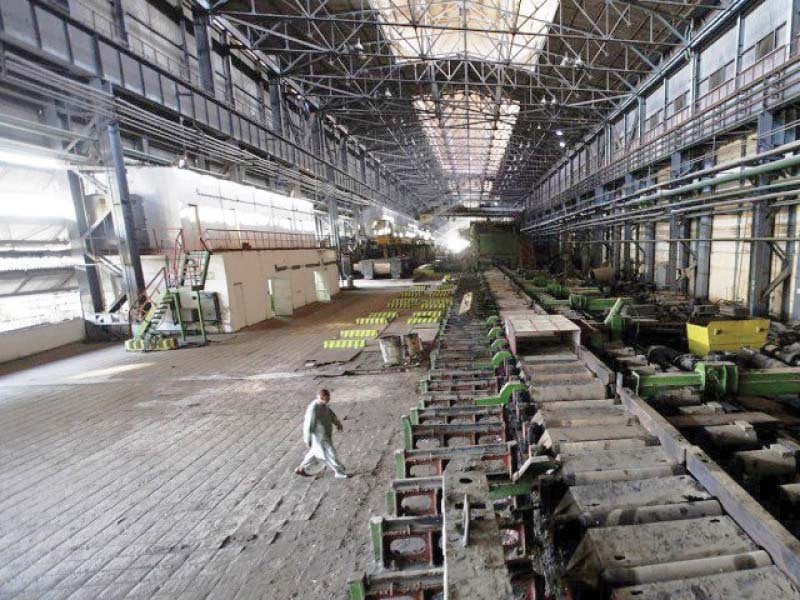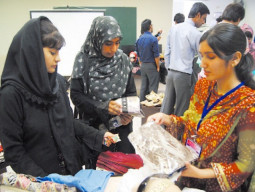
The Economic Coordination Committee (ECC) of the cabinet took these decisions in a meeting chaired by Finance Minister Asad Umar.
The ECC was informed that urea prices in the country had risen 29% in the past one year due to increase in gas tariffs. The ECC also approved new label requirements for imported edible items aimed at promoting consumption of halal and hygienic food.
The Ministry of Industries and Production gave the ECC an update on the current status of National Accountability Bureau (NAB) cases pertaining to PSM. The ECC directed the ministry to ensure that names of people under investigation were placed on the ECL, according to a statement issued by the Ministry of Finance.
The Ministry of Industries told the ECC that 10 PSM cases were pending before NAB involving an amount of Rs7 billion. A majority of these cases were from the period when Mueen Aftab Sheikh was the chairman and chief executive officer of PSM, according to the ministry’s briefing.
These cases were more than 10 years old. The ECC urged NAB to expeditiously decide the cases. In certain cases, NAB has filed a supplementary reference in the Accountability Court, Karachi.
The accused include former chairman, former chief executive, former directors and officials of PSM and officials of Abbas Steel Mills and other trading companies that did business with PSM.
The mill has remained closed for the last over three years and the government is currently in the process of preparing a revival plan with the help of private sector.
Only the federal cabinet can make a decision on including or deleting anybody’s name from the ECL and the matter will now be placed before it.
Manpower task force
The ECC formed a task force for preparing “concrete proposals for the development and export of manpower”, according to the finance ministry. The special assistant to the PM on overseas Pakistanis and human resource development will head the body.
The ECC was informed that for the last three years the export of manpower had been constantly declining, standing at only 382,439 people at the end of 2018. It was down 60% when compared with the statistics of 2015.
Only in the last one year, there was a 23% reduction in manpower export, according to statistics of the Ministry of Overseas Pakistanis. The trend was also not encouraging in January this year as only 43,835 people went abroad for jobs.
Despite the downtrend in the export of manpower, which is the second biggest source of external account financing after exports, the issue has not featured on top of government’s agenda.
The manpower export can provide quick returns to Pakistan in the shape of remittances. It can also help the government meet its promise of creating 10 million new jobs.
The ECC was informed that labour export was declining due to economic slowdown, preference given to locals by Gulf countries and a lack of skilled workforce.
Asad Umar directed that the task force should make projections about overseas employment opportunities over the next five years and the remittances Pakistan would receive by exporting labour.
The ECC was informed that despite the overall slowdown, there were huge employment opportunities in Germany, Japan, Canada, Qatar and Saudi Arabia, which could be tapped by proactively engaging with these nations.
Import labeling
The ECC approved new labeling requirements for imported edible products and allowed amendment to the Import Policy Order to make these changes. All products should have at least 66% remaining shelf life at the time of import, according to the decision.
Ingredients and details of products should be printed both in Urdu and English languages.
There will also be the requirement of printing the logo of halal certification on consumer packaging and the certificate must be issued by an accredited body.
These requirements will also be mandatory for the local manufacturers with effect from July 2019.
Fertiliser situation
The Ministry of National Food Security briefed the ECC about the current availability of fertiliser and its prices. The ECC directed the continued functioning of urea plants till October 2019 to ensure sufficient fertiliser supply during the current Rabi sowing season.
The committee was informed that average prices of urea had increased Rs403 per 50kg bag to Rs1,900. Nearly 29% of the price increase was due to higher gas tariffs.
Similarly, the price of imported di-ammonium phosphate (DAP) fertiliser surged from Rs2,943 per bag to Rs3,569, an increase of Rs626 or 21%. The ministry was of the view that imported urea prices soared because of rupee depreciation against the US dollar.
Imported consignments
The ECC constituted a committee, headed by the minister for ports and shipping, for coming up with proposals for prompt and efficient cargo clearance at ports. The Federal Board of Revenue (FBR) informed the committee that over 6,000 lots and nearly 4,800 containers were stuck at the ports due to a lack of proper documentation, cumbersome procedures on the part of port authorities and obsolete auction procedures.
The FBR recommended the adoption of an electronic auction method to clear the ports and break the monopoly of a few bidders.
Published in The Express Tribune, February 20th, 2019.
Like Business on Facebook, follow @TribuneBiz on Twitter to stay informed and join in the conversation.

1731583017-0/diddy-(42)1731583017-0-165x106.webp)


1719315628-0/BeFunky-collage-(8)1719315628-0-165x106.webp)












COMMENTS
Comments are moderated and generally will be posted if they are on-topic and not abusive.
For more information, please see our Comments FAQ